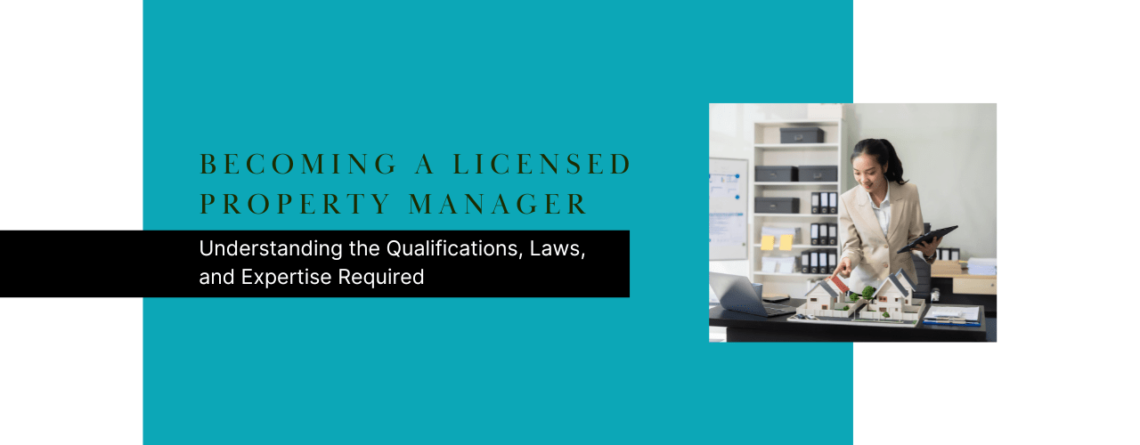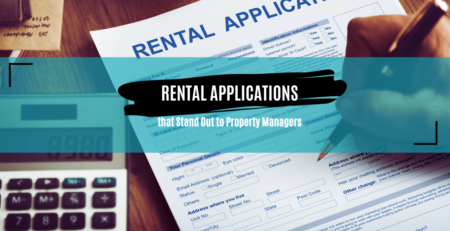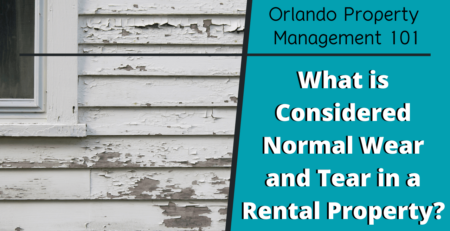Becoming a Licensed Florida Property Manager: Understanding the Qualifications, Laws, and Expertise Required
Property managers play an important role in the community, and in order to do the job well, it’s important to have the education, experience, and even the temperament that the position requires. At Homevest Management, we are licensed property managers in Florida who have been serving communities like Orlando for years. We’re here to help you understand the qualifications, laws, and expertise that’s required.
Think about this before you become a property manager yourself, or as you’re looking for a management partner to lease and maintain your investment properties.
Property Management: What Does It Take?
Becoming a property manager isn’t as easy as attaching the title to yourself.
Instead, to lawfully become a property manager in Florida, you must obtain a real estate broker’s license. This is required by Chapter 475 of the 2019 Florida Statutes. Managing, renting out, and maintaining properties for someone else are all duties that the law sees as related to real estate. So, you’ll need that real estate license if you want to provide management services for others.
As with everything, there are exceptions.
Some property management services can be provided without a license in Florida. For example, if you own a rental property and you hire someone to manage that property for you and pay them a salary instead of a commission, that employee does not need a license. But, when you pay a professional property manager per transaction, that manager needs a license. Commissions change the requirement, and the law sees property management fees as commissions.
Florida laws define a property manager as a professional who oversees properties. The expected responsibilities include:
- Marketing and advertising rental homes.
- Finding and screening tenants.
- Maintaining the property.
- Collecting rent
- Addressing tenant issues, complaints, and relationships.
Essentially, property managers directly manage the property on behalf of the owner.
This is different from a Community Association Manager (CAM), who manages communities such as condo associations or HOAs. They have a longer list of responsibilities that includes enforcing community rules and regulations, maintaining communal areas, and handling accounting and bookkeeping.
In Florida, the licensing requirements for becoming a Community Association Manager (CAM) and a real estate agent share several similarities. There’s education that’s involved, including an exam. There’s also a background check that needs to be passed.
Property Managers and Real Estate Agents: Differences and Similarities
Property management and real estate are very different. The similarities are there – you’re dealing with property. But, each industry requires a different areas of expertise, and we like to use the analogy of working with doctors. Think about the differences between a brain surgeon and a hand surgeon. They’re both doctors, but they have different skills. You wouldn’t visit a hand doctor when there was something wrong with your head.
- Realtors and Real Estate Brokers
Realtors have to help their customers find a piece of property, and then they facilitate that transaction. They might also help their clients sell a home. They need to understand staging and real estate sales markets and the mentality of buyers. They are hired to negotiate the best sales price and terms on behalf of their clients.
Once the sale is complete and the deal has been closed, there’s not much more to do. A smart Realtor will keep in touch with their clients in case they have any needs in the future, but it’s not an ongoing relationship that requires regular communication.
- Property Managers
Property managers have more of a long term role with their clients and the properties they manage. They’re responsible for marketing and screening tenants during the leasing process. Then, they manage the day-to-day needs of the rental home, and they also have to maintain it. As property managers, we are there every day taking care of the rental property our investor clients have trusted us with.
A completely different set of skills and talents are necessary.
We know that a lot of Realtors will offer property management services, especially when the sales market slows down. This is not the best way to go unless it’s a real estate agent who has a lot of property management experience.
We would never recommend that you hire a property manager to sell your home. For the same reasons, you don’t want a real estate agent to manage your property. When they do this, they’re venturing into an area that they don’t know well. Their knowledge base is different.
When you’re not collecting rent, enforcing lease agreements, and establishing relationships with vendors and contractors every day, you’re not providing good service to the homes you’re trying to manage. Real estate agents also don’t know the laws that pertain to the property management industry. There are fair housing laws that are very strict, and it’s easy to make a mistake. There are laws about security deposits and habitability and evictions.
Don’t hire a Realtor when you need a property manager.
Qualifications of a Property Manager
While there isn’t a strict educational pathway for becoming a property manager, certain qualifications can make property managers more competitive, and a number of specific classes and courses of study should be pursued if someone decides they want to go in this direction.
At a minimum, property managers need a high school diploma or GED. This basic education is necessary for most entry-level property management positions. Although not mandatory, having a degree can set property managers apart from others in the field. Degrees in business administration, real estate, finance, or a related field can be particularly beneficial. These programs often cover essential skills such as marketing, accounting, and property management principles. This can provide a competitive advantage when property managers can blend real-world experience with a strong educational background. Wouldn’t you like to hire a management partner with education and experience?
Many future property managers opt for real estate courses. These can be standalone courses or part of a degree program. Topics usually include property law, ethics, and tenant management.
As we discussed earlier in this blog, Florida has specific licensing and certification requirements for property managers. In Florida, property managers must hold a real estate license if they are involved in leasing and renting properties. To obtain this license, a person would need to:
- Complete a 63-hour pre-licensing course.
- Pass the Florida Real Estate Sales Associate Examination.
- Complete a 45-hour post-licensing course within the first year of obtaining the license.
In order to manage community associations like condos or homeowner associations, professionals need a CAM license. Requirements include:
- Completing an 18-hour pre-licensing course.
- Passing the Florida CAM exam.
Certifications and Designations: Why They Matter
When you’re hiring a property manager to take care of your investment, you’re looking for specific skills such as the ability to market your home, relate to tenants, and manage things like rental property accounting and bookkeeping. You need a sales person and a financial expert. You want a marketing genius and a problem solver.
Professional certifications help, too. It shows you that the property manager you’ve chosen takes their industry and their work seriously. A Certified Property Manager (CPM), for example, is something you might come across while you’re looking for a management partner. The CPM designation is offered by the Institute of Real Estate Management (IREM). It’s a nationally recognized certification that can enhance a management professional’s credibility and career prospects. To earn this designation, you need:
- Three years of qualifying experience.
- Completion of specific IREM courses.
- Passing the CPM certification exam.
This is not the only certification available to professional property managers. The National Association of Residential Property Managers (NARPM) is one of the most respected organizations in the industry. They provide designations and certifications as well.
Practice Experience Puts Owners at Ease
 Practical experience is invaluable in property management. You will always be impressed with education achievements, but you want to work with someone who has actually leased homes before, dealt with security deposit returns, and screened tenants.
Practical experience is invaluable in property management. You will always be impressed with education achievements, but you want to work with someone who has actually leased homes before, dealt with security deposit returns, and screened tenants.
You also want professionals with a strong network. Networking is crucial in the real estate industry. Joining professional organizations like NARPM or IREM can provide opportunities for mentorship, continuing education, and job placements.
There’s also ongoing professional development and continuing education. The real estate industry is constantly evolving, and staying updated with the latest trends, laws, and technologies is essential. Many professional organizations offer continuing education courses to help you stay informed and competitive.
When you’re looking for a property manager, find someone who can provide all the services you need. Make sure they’ve invested in technology, that they prioritize communication, that they can get your listing on the MLS. Dig into their reputation, both within the industry and the local community.
We think we have some of the best property managers working with us. Find out more about how to choose the right property manager, and even how to become a property manager if that’s what you’ve been thinking about. We’re ready to help.
Contact us at Homevest Management, Inc. for all of your Orlando property management needs. We serve all of Central Florida, including Winter Garden, Doctor Phillips, Baldwin Park, Winter Springs, and Windermere.











